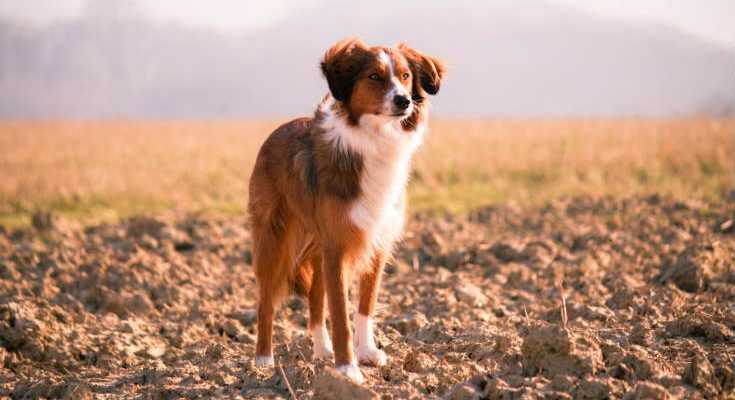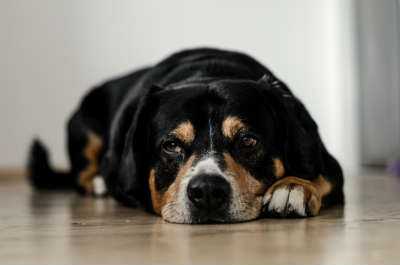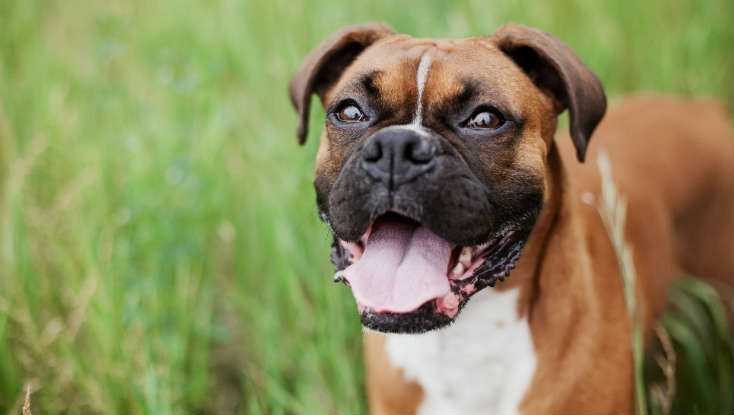Dog Friendly Lawn Care: Pet Safe Fertilizer Reviews

Most Americans are familiar with the sacrifices that accompany pet ownership, but a healthy lawn and garden does not have to be something we give up when we welcome pets into our families. When considering which pet safe fertilizer to use, it is important to be aware of the potential risks and benefits that different fertilizers provide. In this article we will attempt to find the best fertilizers that do not pose a threat to our pooches.
Keeping Your Pet Safe from Fertilizer
When applying a pre-packaged fertilizer to the lawn, always be sure to check for any warning labels that may be present on the container.
If it is not listed on the packaging, check the manufacturer’s website for more information, or contact the company to ask about specific instructions.
Using natural fertilizers such as grass clippings, seaweed, manure, or compost can also be safer alternatives. The benefits could be great compared to some pre-made fertilizers containing potentially harmful substances.
Symptoms of Fertilizer Pet Poisoning
It is important to be aware of the symptoms associated with fertilizer poisoning in case your pet does encounter dangerous compounds or chemicals present in many lawn fertilizers.
Some of these toxic substances can include pesticides and fungicides.
Also, compounds such as nitrogen, iron, and phosphorous can be toxic if they are consumed in large amounts.
If a domestic pet eats, drinks, or makes physical contact with any fertilizers containing toxins, be on the lookout for symptoms associated with pet fertilizer poisoning.
The consumption of herbicides or pesticides can be especially severe or life-threatening. Some of these symptoms can include:

- Difficulty in breathing
- Liver damage
- Bloody diarrhea or vomiting
- Blue or brown mucus
- Seizures
- Tremors
- Death
Be very cautious using fertilizers containing herbicides, fungicides, and pesticides such as rose fertilizer, blood meal and bone meal.
Contact a veterinarian or animal hospital immediately if a pet experiences any of the above listed symptoms.
How Long to Keep Dogs off Grass After Fertilizing?
Generally, it is a good practice to keep pets off the lawn for about 24 hours after applying fertilizer. Many toxins present in fertilizers weaken when diluted with water, so if there is no rain in the forecast, consider washing off the yard with a hose or sprinkler before letting pets back outside.
Soil absorbs liquid fertilizer more quickly than granular fertilizer, so it may take a little longer for grass to be safe after applying granular products. Following the 24-hour rule, make sure that pets are not on the treated area for 24-hours after granules were last spotted on the grass blades.
Also, be certain that there are no clumps of fertilizer hiding on the lawn, as pets may try to eat or play with it.
If pets do go onto the treated area before the 24-hour mark, wipe off their paws with a warm, soapy cloth. If their skin or hair contacted grass in the treated area, bathe them to wash off any toxins.

Using Pet Safe Fertilizer for Lawns and Gardens
Given the abundance of potential dangers that accompany many fertilizers, it may be beneficial to consider some more pet-friendly fertilizers.
Leaving grass clippings on the lawn after mowing can permeate the soil with up to 20% more nitrogen.
Seaweed is another nitrogen-rich option that can usually be purchased as a liquid solution and sprayed directly onto grass and plants.
Fish emulsion makes great pet safe fertilizer for lawns and gardens, but use it in moderation. Too much of it can burn plant roots. Also, be aware that dogs may be drawn to its smell and dig up plants fertilized by the fish emulsion.
Horse or cow manure can also be employed as a fertilizer, but dogs may attempt to eat it that, as well. Try composting the manure for several months to dissipate the smell and make it less appetizing for dogs.
Making your own compost is an excellent option for natural fertilizer as it is simple, free, and completely safe for pets. It can be easily applied to plants, but it will require a large amount of compost to fertilize an entire lawn.
Best Pet Safe Fertilizer Reviews
Many retailers offer pre-packed pet safe fertilizers that are available for purchase.
This is a pet-friendly lawn fertilizer that can treat up to 5,000 square feet of lawn and provides an excellent alternative to toxic fertilizers.
It absorbs quickly through the soil and is completely safe for pets after the first watering.
Rich in nitrogen, this 24-0-6 fertilizer provides the nutrients necessary to promote a lush, green lawn while also keeping both domestic pets and wildlife safe.
Simply add water, apply the fertilizer to the lawn, and notice results in 6 to 8 weeks.
Conclusion – Pet Safe Lawn Fertilizer Does Exist
For most of us. pets are extensions of our families. They deserve all the care and caution we can give them, but we do not have to sacrifice a healthy lawn and garden in the process.
Using pet safe fertilizers can help guarantee the health of both our gardens and our pets.
Alternatively, you could use artificial dog patches, instead of real lawn, then there would be no need for possibly dangerous fertilizers.

